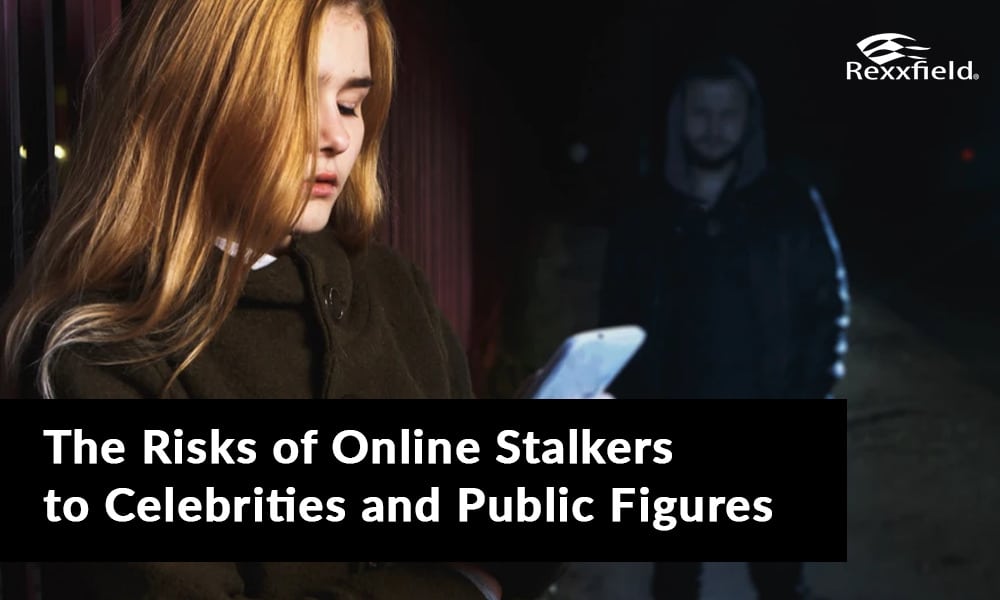Prominent individuals frequently endure unwelcome and intrusive attention from individuals who engage in stalking behavior. This behavior can stem from various factors, such as psychotic illness, wherein the stalker falsely believes they are being persecuted by the public figure out of resentment, or from erotomanic delusions, where the stalker seeks a romantic connection with the figure. Such behavior is both harmful to the mental well-being of both the perpetrator and the victim, and it is also illegal. In cases where public figures have been attacked, the perpetrators often have a history of stalking behavior and severe mental illness. Therefore, it is crucial to identify and redirect these individuals to appropriate care and treatment early on, or seek criminal relief if they are psychopaths. This approach benefits both parties involved and helps prevent more serious acts of violence in a small percentage of cases.
Notably, several prominent figures, including actors Brad Pitt, Keira Knightley, Jennifer Aniston, Gwyneth Paltrow, and Leonardo DiCaprio, as well as musicians Bob Dylan, Rihanna, Beyonce, Taylor Swift, Lily Allen, and Lana Del Rey, have all encountered personal stalkers.
Warning behaviors
The stalkers who target public figures and celebrities often come to attention due to their unwelcome communication or inappropriate approaches. In a case study conducted by Fein and Vossekuil, it was found that 61% of individuals who attacked or attempted to attack prominent public figures in the USA had a history of psychiatric illness. Among them, 43% had a history of delusional ideas, with 88% of them acting upon those delusions, and 11% experienced command hallucinations. Additionally, 77% of the attackers had a history of verbal or written communication with their targets. Another study focusing on attacks on European politicians (James, Mullen and Meloy 2007) revealed that 42% of the attackers were psychotic at the time, and there were warning behaviors observed in 11 cases. Analyzing 23 attacks on the British royal family between 1778 and 1994, it was found that 48% of the attackers were psychotic, and 10 out of the 23 exhibited warning behaviors. This group demonstrates high rates of severe mental illness, particularly psychosis, as well as a significant presence of warning behaviors. These clinical features present an opportunity for intervention to prevent adverse outcomes.
What Motivates Cyber Stalkers
What motivates individuals to engage in correspondence or meetings with public figures? There are various groups with different motivations, and specific public figures may attract one group more than others. For instance, members of Parliament have a constitutional role in addressing grievances, so it is unsurprising that MPs often attract individuals seeking assistance with pathological grievances. On the other hand, young, attractive, and eligible celebrities or royalty may be a specific target for individuals driven by erotic interests, and consequently, the pathologies associated with love as well.
The spurned:
This group consists of former intimate partners or individuals who had a close relationship with the public figure but have been unable to accept the loss of that relationship. Although they are the most common type of stalkers, they usually fall outside the scope of public figure or celebrity threat management units, as their motivations originate from the personal life of the prominent individual rather than their public role. The spurned will often cause trouble for their victims, through harassment, and even setting them up for crimes they did not commit. Reccfield rescued two such victims from jail in 2023, after being wrongly convicted.
The resentful:
This group is of greatest concern in terms of the risk of violence and often captures the attention of public figure threat management units. They harbor anger and pursue a grievance or have a unique agenda, either blaming the public figure for their perceived persecution or demanding the figure’s intervention to address their situation. Clinically, this group includes many individuals with paranoid illnesses, such as those who believe they are victims of “gang stalking,” targeted individuals, or subjects of mind control, secret government experiments, or manipulation by apps. Additionally, within the resentful category, there are individuals known as abnormally persistent complainants, who present a complex and challenging clinical profile. Initially, their complaint may have stemmed from a genuine grievance, but over time, often spanning decades, their response becomes highly pathological and disproportionate to the initial offense. Some individuals in this group develop delusional beliefs that require psychiatric management, although engaging in such treatment becomes difficult due to their tendency to involve clinical staff in their patterns of complaints and legal actions. Others, while not necessarily delusional, exhibit highly problematic behavior that affects both themselves and those around them. Complaints departments are well-acquainted with such individuals, even if psychiatrists may not be as familiar.
The infatuated:
This group (accounting for 24% of referrals to FTAC) comprises individuals who strongly believe they are entitled to or already possess a close personal relationship with the public figure. They may perceive themselves as advisors (amity seekers), sexual partners (erotomanic), or even claim to hold the same public role as the figure (pretenders). It is common for these individuals to suffer from psychotic illnesses, accompanied by delusional beliefs regarding their connections. Some may even go to the extent of submitting biological material for DNA testing as evidence of their supposed kinship. This group is likely even more prevalent among stalkers of celebrities.
The desperate:
Help seekers are individuals who approach or write to public figures in a more vulnerable and desperate manner, rather than displaying anger or entitlement. They may express concerns about their own well-being and reach out to the public figure as a last resort for assistance.
The Inept Pursuers:
Inept pursuers are individuals who, often in abnormal or persistent ways, attempt to establish an intimate relationship with public figures. Typically, members of this group struggle to comprehend social rules and norms, with a higher representation of individuals with autistic spectrum disorders and intellectual disabilities.
The Predatory:
Predatory stalkers engage in covert preparations with the intention of carrying out a sexual assault. This is a rare group that consists of high-risk sexual offenders, occasionally coming to the attention of celebrity stalking management units. Not only are they infrequent, but they also actively conceal their preparations, making it uncommon for them to be referred to psychiatric services compared to other motivational groups.
The Sensation Seekers:
A group of individuals catches the attention of threat management units due to their unconventional behavior aimed at garnering attention for personal glorification or notoriety. This behavior stems from personality disorders, with a potential overrepresentation of borderline, emotionally unstable, and histrionic types. The general approach in dealing with this group is to avoid excessive institutional response and instead minimize the involvement of threat management units, aiming to extinguish the unwanted behavior.
The Chaotic:
Lastly, there are individuals who exhibit chaotic behavior, characterized by severe psychosis to the extent that discerning any underlying reason or purpose behind their approach or communication becomes nearly impossible. This often stems from profound thought disorder.
The Bored:
According to a study led by Dr. Maria Wong, an experimental psychology professor at Idaho State University, individuals who are prone to boredom are more likely to develop tendencies of celebrity stalking. The research team in the United States conducted the study to distinguish between superfans and stalkers, and they discovered that individuals were less inclined to engage in stalking behavior if their admiration for a celebrity was solely based on their entertainment value. Another differentiating factor between an obsessive stalker and a devoted fan is the compulsion felt by the admirer to gather more information about their preferred celebrity. This groundbreaking study, carried out by a team of professors, involved surveying approximately 600 university students in the United States and provides fresh insights into the factors associated with a propensity for engaging in stalking behaviors.
Challenges for Public Figures in Handling Online Stalkers
Navigating the delicate balance between public relations and safety presents a challenging task for public figures. They are faced with the responsibility of addressing threats while also avoiding negative publicity. Disregarding such threats can increase the risk of harm, but an excessive response may invite criticism and accusations of overreacting. Dealing with cyber stalking and harassment adds further complexity as public figures must assess the severity of the situation to determine the appropriate course of action. Is the stalker simply an overly enthusiastic fan or a genuine physical threat? Additionally, protecting their public image poses a significant challenge. Any misstep or legal action taken may receive extensive media coverage and potentially tarnish one’s reputation.
We can Mitigate Those Challenges and Bring Relief
With decades of experience in handling various types of stalkers and anonymous adversaries, we offer assistance in assessing the severity of threats and determining the best course of action. In cases where the cyber stalker is unidentified, our expertise enables us to unveil their identity, empowering you to pursue legal action.
Rexxfield has proudly served a distinguished clientele, including celebrities, billionaires, heads of state, and royal families. Our commitment to client confidentiality is unwavering—we never disclose information about our cases to the public, unless authorized by the client themselves, as exemplified by Brewdog founder James Watt’s choice to share his experience. Rest assured that our stringent privacy measures safeguard our clients’ personal information and reputation.


